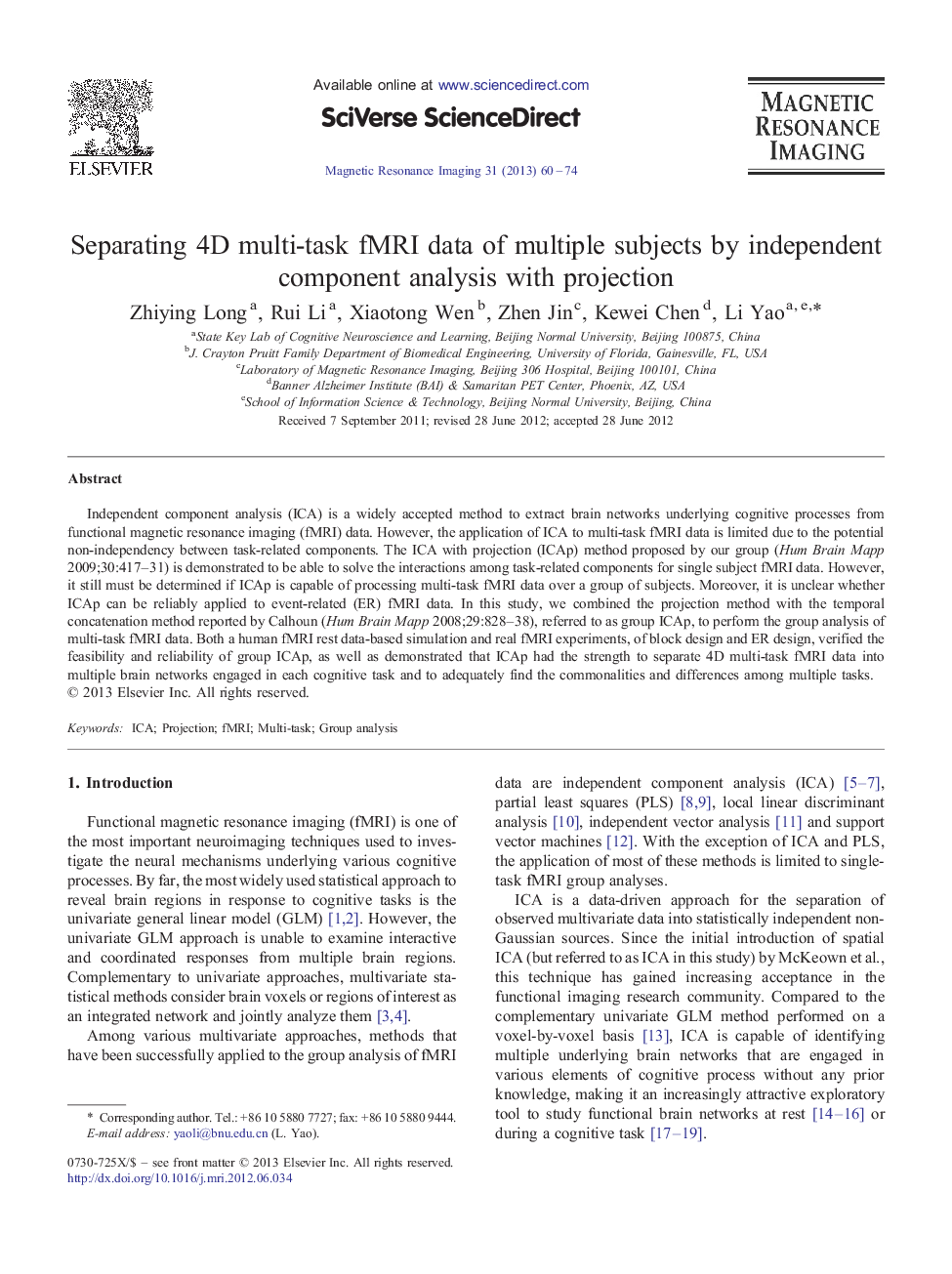| Article ID | Journal | Published Year | Pages | File Type |
|---|---|---|---|---|
| 1806749 | Magnetic Resonance Imaging | 2013 | 15 Pages |
Abstract
Independent component analysis (ICA) is a widely accepted method to extract brain networks underlying cognitive processes from functional magnetic resonance imaging (fMRI) data. However, the application of ICA to multi-task fMRI data is limited due to the potential non-independency between task-related components. The ICA with projection (ICAp) method proposed by our group (Hum Brain Mapp 2009;30:417-31) is demonstrated to be able to solve the interactions among task-related components for single subject fMRI data. However, it still must be determined if ICAp is capable of processing multi-task fMRI data over a group of subjects. Moreover, it is unclear whether ICAp can be reliably applied to event-related (ER) fMRI data. In this study, we combined the projection method with the temporal concatenation method reported by Calhoun (Hum Brain Mapp 2008;29:828-38), referred to as group ICAp, to perform the group analysis of multi-task fMRI data. Both a human fMRI rest data-based simulation and real fMRI experiments, of block design and ER design, verified the feasibility and reliability of group ICAp, as well as demonstrated that ICAp had the strength to separate 4D multi-task fMRI data into multiple brain networks engaged in each cognitive task and to adequately find the commonalities and differences among multiple tasks.
Related Topics
Physical Sciences and Engineering
Physics and Astronomy
Condensed Matter Physics
Authors
Zhiying Long, Rui Li, Xiaotong Wen, Zhen Jin, Kewei Chen, Li Yao,
